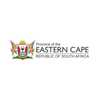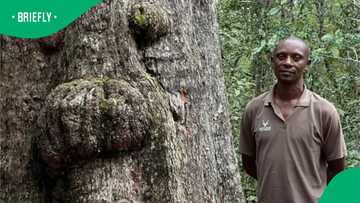
Eastern Cape
- Population: 7.2 million
- Area: 169,000 km²
- Capital: Gqeberha
- Municipality: The Eastern Cape is divided into two metropolitan municipalities (Nelson Mandela Bay and Buffalo City) and six district municipalities (Alfred Nzo, Amathole, Chris Hani, Joe Gqabi, O.R. Tambo, and Sarah Baartman). These district municipalities are further subdivided into 31 local municipalities.
- Area codes: Varies by region within the province, but some key codes include 040 (Bhisho), 041 (Gqeberha/Port Elizabeth), 043 (East London), 044 (Garden Route, also extends into Western Cape), and 045 (Queenstown).
- Established: April 27, 1994
- GDP: R537 billion
History
The Eastern Cape has a rich and complex history, marked by centuries of interaction and conflict between indigenous peoples (Khoisan, then Xhosa) and European settlers (Dutch, British, and German). It was one of the first areas in South Africa to be explored by Europeans, with the Portuguese arriving as early as 1488. The 1820 Settlers, several thousand British immigrants, arrived at Algoa Bay (near present-day Gqeberha) in that year, significantly shaping the region's demographic and cultural landscape.
The Eastern Cape was the site of the nine Cape Frontier Wars between the Xhosa and the British from 1779 to 1878. During the apartheid era, parts of the region were designated as "homelands" for Black people, specifically Transkei and Ciskei. These "independent" homelands were reintegrated into South Africa with the end of apartheid in the early 1990s. The Eastern Cape province, as it exists today, was formed in 1994 from the southeastern part of the former Cape Province, along with the former homelands of Ciskei and Transkei.
It is notably the birthplace of many anti-apartheid activists and prominent South African leaders, including Nelson Mandela, Thabo Mbeki, Steve Biko, Chris Hani, and Oliver Tambo.
Education
The Eastern Cape has a comprehensive education system, governed by the provincial Department of Education. It includes a network of primary and secondary schools across its metropolitan, district, and local municipalities. While facing challenges, efforts are continuously made to improve educational outcomes.
The province is home to several significant higher education institutions:
- Rhodes University (Grahamstown/Makhanda)
- Nelson Mandela University (Gqeberha/Port Elizabeth)
- Walter Sisulu University (campuses in Mthatha, East London, Butterworth, and Queenstown)
- University of Fort Hare (Alice, East London, and Bhisho)
These universities offer a range of undergraduate and postgraduate programs, contributing to research and development in the region and nationally.
Law and government
The Eastern Cape provincial government operates under a parliamentary system, with the provincial legislature electing the Premier, who is the head of the executive. The Premier leads an Executive Council responsible for various provincial departments. The Eastern Cape Provincial Legislature is situated in Bhisho, the provincial capital.
South Africa has a single national judiciary, but the Eastern Cape Division of the High Court of South Africa has jurisdiction over cases arising in the province. Its main seat is in Makhanda (Grahamstown), with local seats in Bhisho, Mthatha, and Gqeberha (Port Elizabeth), and a regular circuit court in East London. The province also has numerous magistrates' courts and regional courts.















